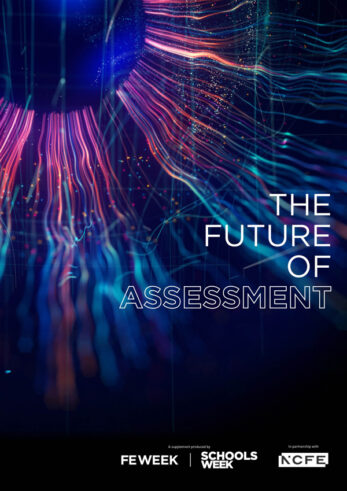When news of the ‘British Baccalaureate’ reached AQA’s offices, the team couldn’t help but chuckle at the dour reaction of our Scottish colleague: “British? How can it be British if Scotland has nothing to do with it? Argh!”
More seriously, having spent this year conducting research for a policy report on this very topic, my immediate reaction was: if another Bacc is the answer, are we sure we’re asking the right question?
Much of the conversation in education policy spaces recently has focussed not only on the British Baccalaureate but also the EBacc, changes to Progress 8 measures, and ‘maths to 18’. These are well-intentioned and could well drive positive change. But do we need to take two steps back and ask? What is the problem we’re actually trying to solve?
We think the question we’re really asking is how to ensure our young people leave education prepared for the wider world. Because as much as the prime minister talks about ‘maths to 18’, it’s always been clear we’re not talking here about more young people doing maths A level. There is no issue currently with the progression route for academically-minded young people with a love of maths,.
Instead, the issue the prime minister has rightly raised is that maths is universally important to get on in life and the world of work. And we think that means we’re really talking here about numeracy, not maths.
That’s why today we’ve published a report proposing a new way we can equip young people with the critical skills of numeracy, but also literacy and digital fluency too – so they can manage their finances and other everyday tasks, communicate confidently, and navigate information in an increasingly digitally sophisticated world.
We’ve looked at the current situation, and it is pretty bleak. Figures from the Organisation for Economic Co-operation and Development (OECD) show that in England 9 million adults have low basic skills in literacy or numeracy, of which 5 million have low skills in both. 10 million people in the UK are financially illiterate, and the UK ranks in the bottom half of OECD countries in financial literacy.
We believe part of the answer lies in how we do assessment. We are proposing a new, digital, on-demand assessment of core competences focused on the fundamental skills and knowledge required to be literate and numerate.
That’s because all of our existing assessment approaches are grounded in exams and qualifications whose inherent function is to differentiate. This makes total sense when trying to help employers or universities understand who the best maths students are. But to tackle this specific problem, what we need is the opposite: something that demonstrates whether people have met the same fundamental standard, not how they differ.
Take the example of driving tests. Everyone has to pass the same driving test to be allowed to drive on the road. So even if you’re Lewis Hamilton (or Jackie Stewart, to appease our aforementioned colleague!) you have to take and pass the same test as everyone else.
And that is how the new assessment we’re proposing could work.
Imagine using your device of choice, chatting with a smart assistant to choose a topic you want to be assessed on, such as comparing mortgages. You work through interactive questions in a variety of formats – multiple-choice, picture, audio/video – that adapt to you, and your answers are marked on the spot so you get an immediate score.
So you have an opportunity to showcase your numeracy skills in a variety of real-world situations, and of course there will be real people and experts at the ready behind the scenes to support you.
We believe the answer to this problem lies in similarities, not how you’re different or stand out from the crowd. So in that way, I suppose it really does sound quite British.














Your thoughts